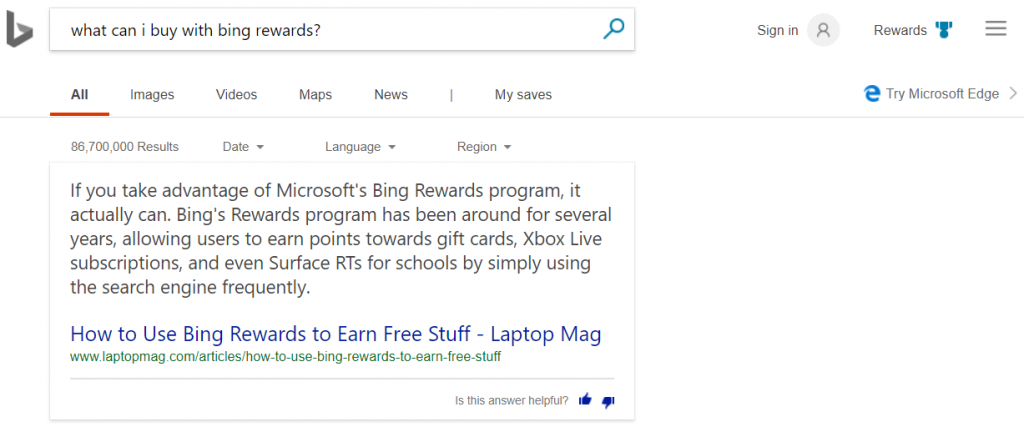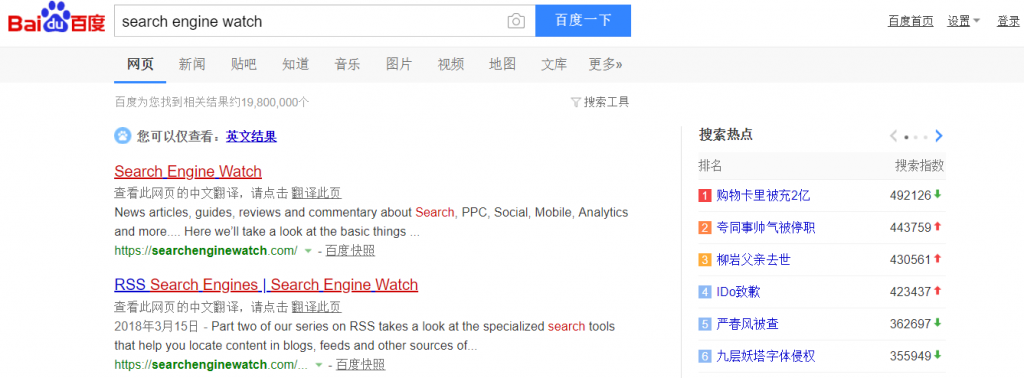
Working at Search Engine Watch isn’t all about studying, understanding, and reporting on Google. With more than 9% of web users searching on other engines, it’s important that we occasionally take the time to check out what they are using and what those platforms are up to.
Read on for my hotlist of 12 alternatives to ‘The Big G’. As you’ll see, there’s been some changes in the alternative search world since my colleague Christopher Ratcliff wrote his comprehensive listicle back in early 2014[1]. Since then, some have dropped off the map and others have been usurped in usefulness by Google’s increasingly rich functionality, and are not featured here.
Globally, Bing is still the second biggest search engine after Google and it also still powers the third biggest, Yahoo!.
With its clean white background, blue links, and green URLs, it sure looks familiar although it also features a few things that sets it apart. For example its ‘Rewards’ scheme gives you points when you shop or search via the service that can then be used to go towards buying things like apps and movies.
Bing also has a ‘My Saves’ function acting as a bookmark tool. It also boasts some prominent – and handy – filters for results by date, language, and region.
If you have an interest in digital in Asia, you need to know about Baidu.
Baidu is the search engine of choice for around 77% of China’s internet market. Though its dominance can be seen to fluctuate – thanks to fierce competition from other domestic rivals such as Shenma and Haosou.
Like Bing,



